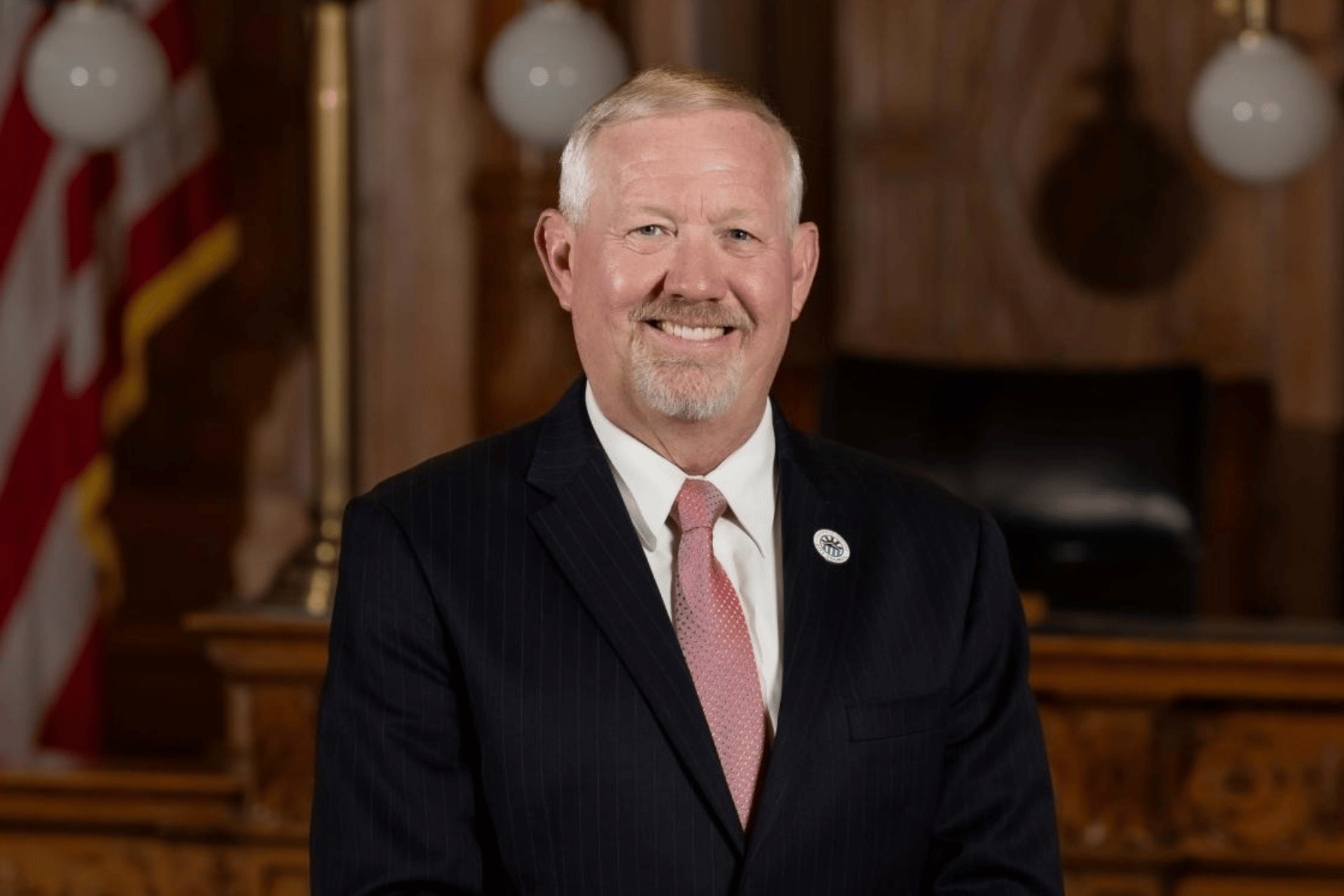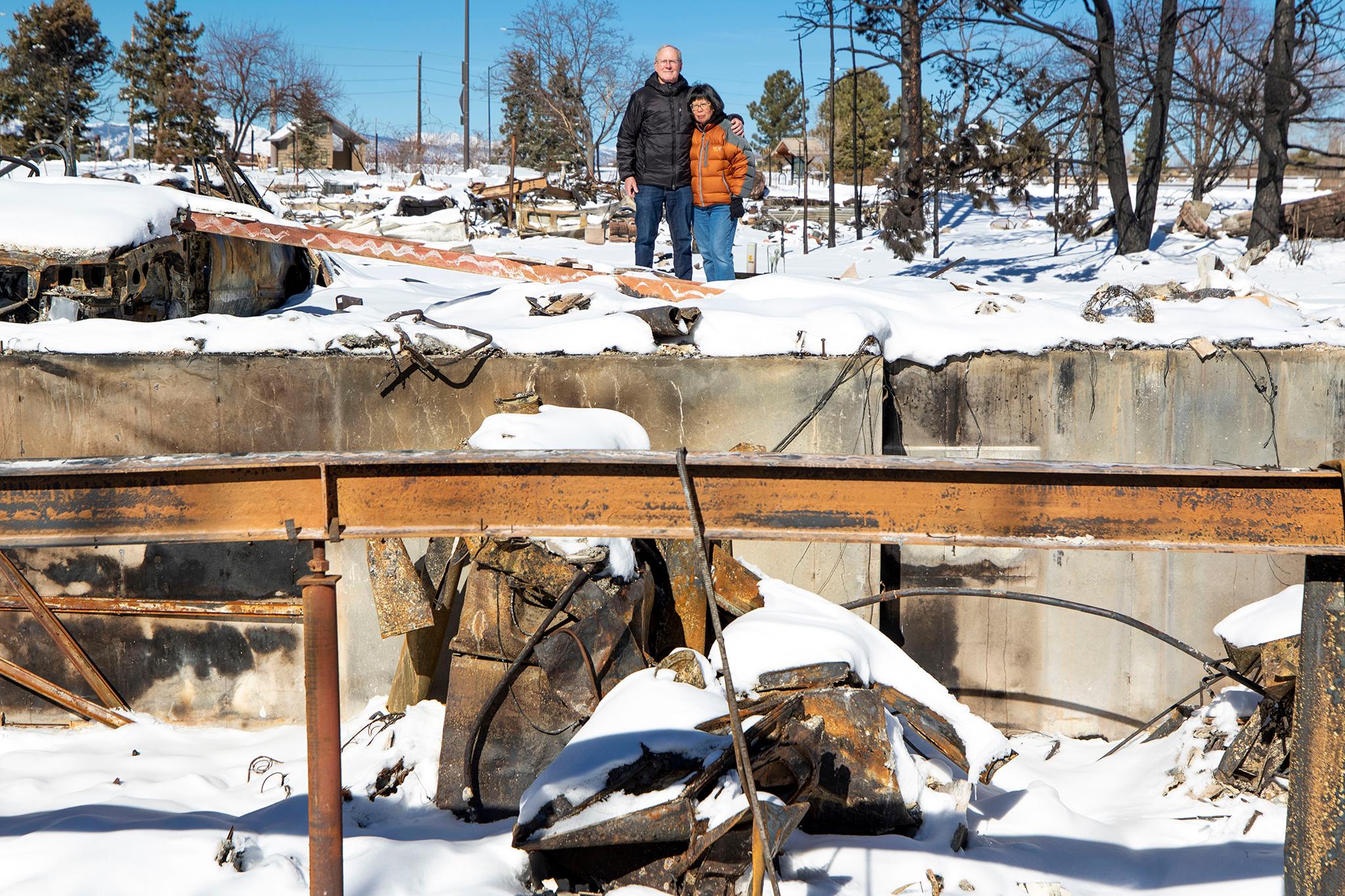
Susan Loo, a retired Louisville city council member, was skeptical when her former colleagues decided to adopt some of Colorado's most aggressive green building codes last fall.
At the time, she worried the local construction rules, designed to cut emissions and energy costs, weren't practical and could slow commercial development across the city.
She never suspected the devastation the Marshall fire would bring just weeks later. The suburban firestorm destroyed more than 550 homes across Louisville, including her two-story home near Harper Lake.
On a frigid morning in February, she and her husband stood at the edge of an open pit that was once their basement, struggling to identify the burnt remains of a furnace and an exercise machine.
Each fire victim must now figure out whether their insurance plan, if they have one, will cover the costs of rebuilding. Due to the fine print of each policy and high pandemic building costs, many residents have reported they don’t have enough coverage to pay the full cost of a new home.
After the late-December disaster, which started as a wind-whipped wildfire that spread rapidly from grassy areas baked by drought and unseasonably warm temperatures, Loo didn’t waste time organizing her neighbors. She sent emails pointing out the new construction codes could increase rebuilding costs.
An estimate prepared for the city later found the regulations could add at least $20,000 to the price of rebuilding an average home lost to fire. If the new standard adds a burden, Loo said city leaders should let fire victims rebuild under the earlier version.
"This is politics on the back of people who have lost everything," she said. "I just can't understand that."
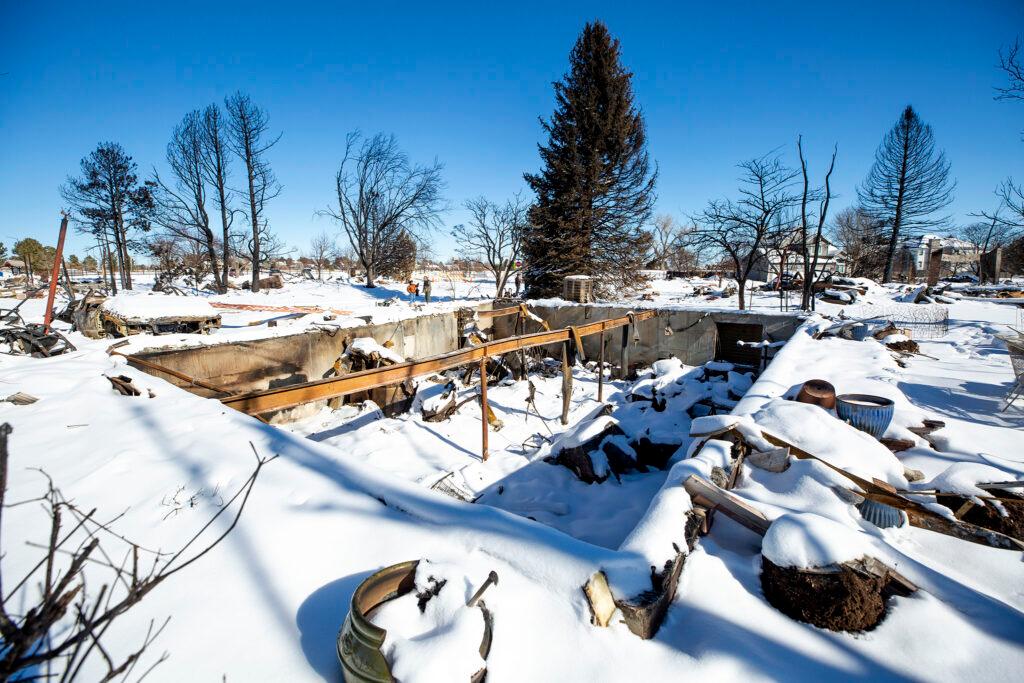
The growing tensions highlight what happens when local climate policy collides with the everyday impacts of a climate-driven disaster.
For some fire victims, Louisville’s new climate-minded building codes are a chance for progressive neighbors to rebuild as a model sustainable community. Other families displaced by the Marshall fire worry those ambitions will mean more debt and longer stays in someone else's basement.
Louisville, population 20,000, is a coal town-turned-suburb next door to Boulder, where many residents commute to work government jobs or conduct some of the world's leading climate research. Local voters elected a sustainability-minded majority to its city council in 2019.
Mayor Ashley Stolzmann, who won her current office in the same election cycle, spearheaded the push for the new building codes last year. The final standards amount to some of the most ambitious local efforts to cut the climate effects of new buildings anywhere in Colorado.
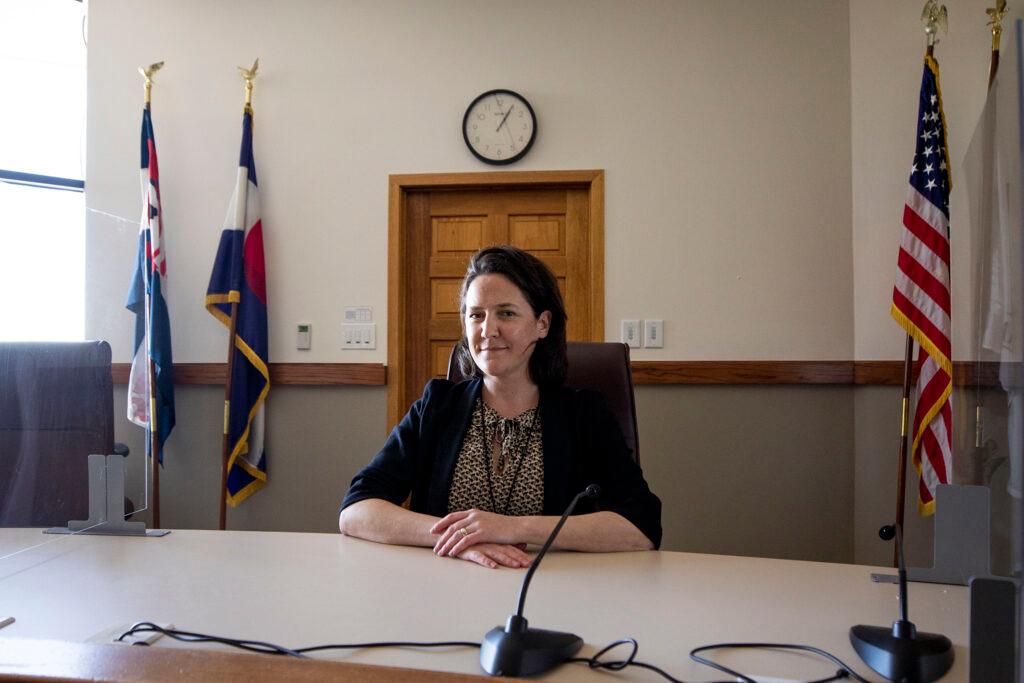
While she wishes the codes had gone further, Stolzmann said they're an example of how a local community can start treating climate change as a public health crisis. From her perspective, the construction rules are similar to building codes designed to help prevent the next wildfire from burning through the community, something else the council is considering in the wake of the disaster.
"That's what building codes are fundamentally for. It's to keep your house from impacting your neighbor's house. These energy codes are no different than that," she said. "Climate change is an issue of immediate public interest."
The updates moved Louisville to the 2021 International Energy Conservation Code, which sets standards for home heating systems and insulation. The U.S. Department of Energy estimates the standards cut an average home's energy use by about 9 percent compared to the 2018 standards.
In addition, Louisville now requires that new homes accommodate a shift away from fossil fuels to an all-electric future. Garages must have plugs ready for electric vehicle chargers and kitchens must have wiring for modern electric stoves.
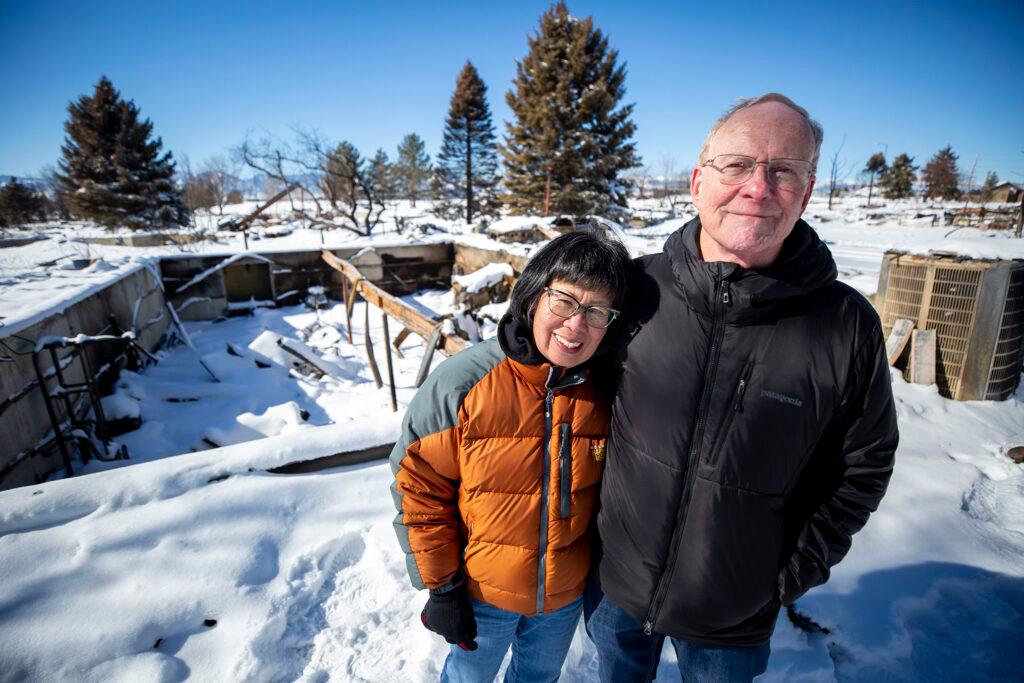
One of the most ambitious pieces of the new standards is the city's net-zero energy requirement.
Once a newly constructed home passes tough efficiency tests, the city requires homeowners to meet the remainder of their energy demands through an on-site solar system. Alternatively, they can buy into another renewable energy project, like a community solar garden, for a 15-year period.
Stolzmann agrees it isn't fair to ask residents affected by the Marshall fire to cover the cost of meeting the new code updates. She said city staff is currently working with a range of organizations — including Xcel Energy, the National Renewable Energy Laboratory and electric appliance manufacturers — to put together a suite of incentives and discounts to defray the added costs.
Gov. Jared Polis also wrote a public letter to residents promising he'd help introduce legislation to fund a "sustainable and resilient recovery for your community and others in the future." Will Toor, the director of the Colorado Energy Office, also thinks the city overestimated the costs of meeting the new codes and said his staff is preparing its own analysis.
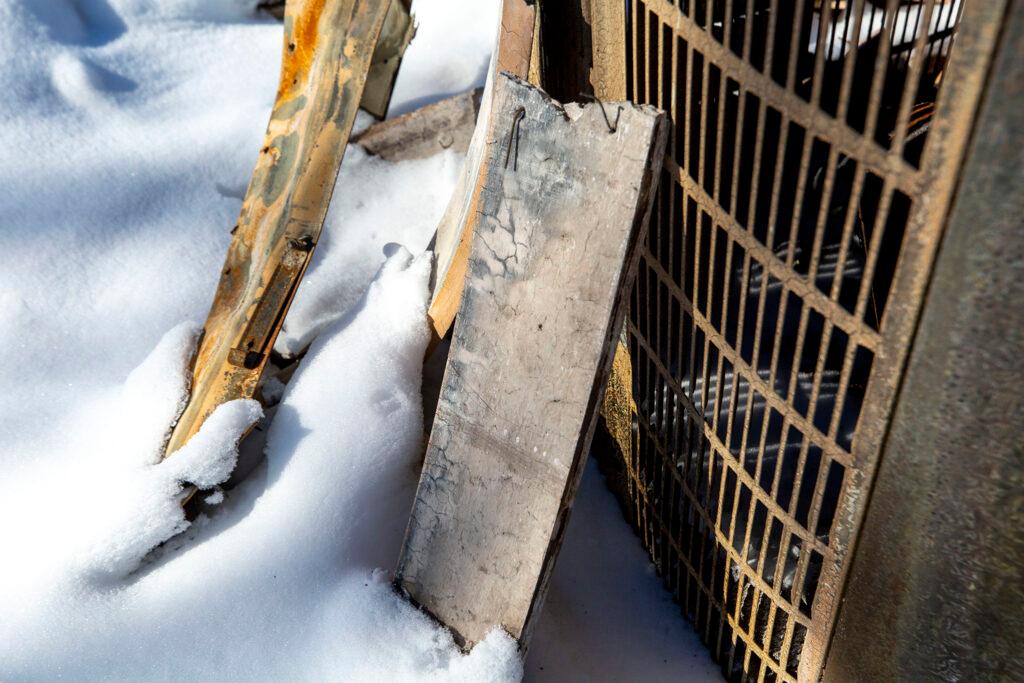
Stolzmann said she's confident the city will come up with some sort of package to help homeowners offset the added costs, no matter the total.
At a recent city council meeting, some fire victims applauded those efforts and asked local leaders not to budge from the new standards. Others weren't convinced any extra financial assistance promised by city and state leaders would be enough to cover the total price of the upgrades.
Christian Dino, a Louisville architect and co-owner of a local building company, first objected to the new code as a member of the city’s Building Code Board of Appeals. After losing his home in the Marshall fire, he worries the updated codes could lead many under-insured families to find new housing somewhere else.
"A code like this was written for the half a dozen homes being constructed in a year," he said. "Not for hundreds of Louisville residents that are currently homeless."
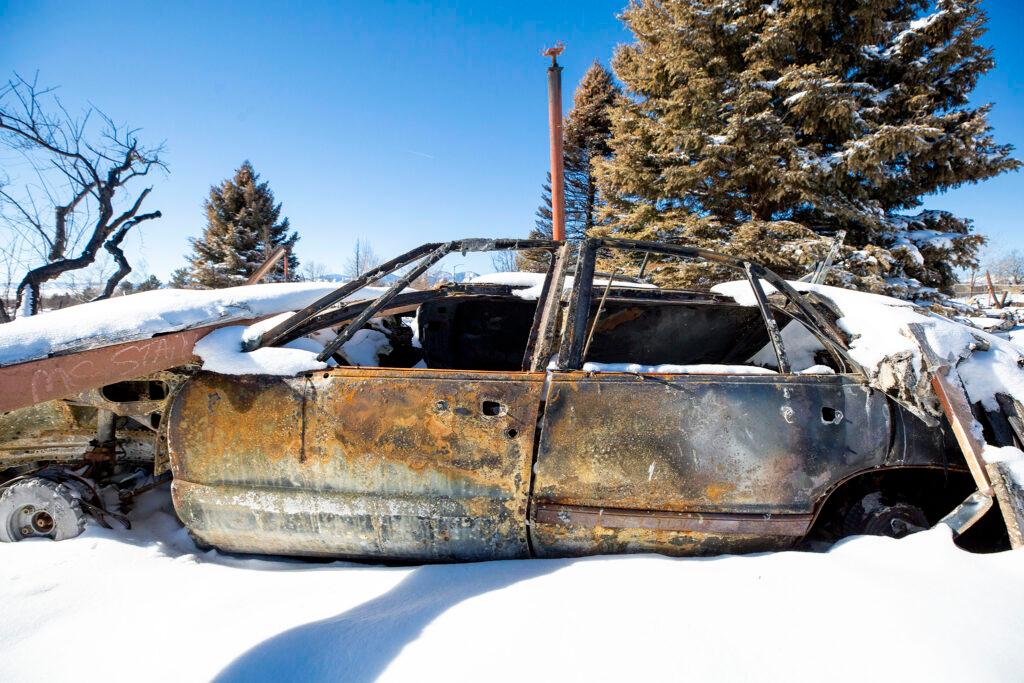
Mayor Stolzmann said the city council has asked staffers to prepare additional information on financial assistance. She expects to have more answers for residents at the start of next month.
Loo, the former councilperson, is also skeptical that financial assistance will arrive quickly enough to make a difference. She said many fire victims are on the clock to start rebuilding due to inflation and insurance policies, which often only pay living expenses for a limited amount of time. If city leaders have plans to offer assistance, she'd like to see them as soon as possible.
"It's sort of like the Tom Cruise movie. If the money's there, show me the money, because I'm not seeing it," she said.








